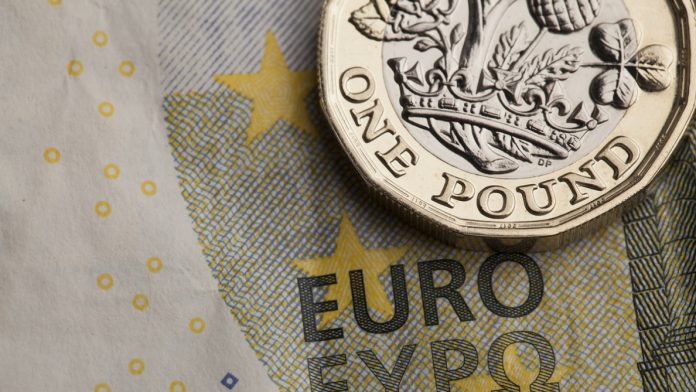- Pound (GBP) trades below €1.17 after UK factories lose steam
- BoE in focus later in the week
- Euro (EUR) rose after upbeat Eurozone manufacturing PMI data
- Eurozone PPI up next
The Pound Euro (GBP/EUR) exchange rate is edging higher after booking mild losses in the previous session. The pair settled lower on Monday, down -0.16% at €1.1693 towards the low of the session. At 05:45 UTC, GBP/EUR trades +0.03% at €1.1697.
The Pound slipped at the start of the week after data revealed that UK factories lost a bit of steam in July. The IHS Markit /CIPS UK manufacturing PMI dipped to 60.4 in July, down from 63.9 in June as the sector struggled with supply chain issues and staff shortages. Even so activity growth was still one of the fastest on record.
Separately, the National Institute of Economic and Social Research (NIESR) forecast that British consumer price inflation will rise to 3.9% early next year. This is almost twice the Bank of England’s target. However, the think tank also considered that inflation will fall back to the 2% target level if the BoE raises interest rates. The NIESR also raised its growth forecasts for 2021 by 1.1% to 6.8%. The upward revision was broadly inline with recent upgrades from the BoE and IMF.
With little in the way of economic data due to be released, attention will remain on covid cases which recorded 21,952 new daily cases on Monday.
The Euro received a boost on Monday following upbeat data. German retail sales surprised to the upside rising 4.2% month on month in June, after rising 4.2% in May. Analysts had expected a 2% increase.
German and Eurozone manufacturing activity proved to be resilient in July, according to the latest IHS Markit manufacturing PMI data. For the Eurozone the PMI was revised to 62.8, slightly higher than the flash estimate. Germany enjoyed the strongest growth in the bloc, with factory activity hitting a 3 year high.
Today the economic calendar is quieter. Eurozone producer prices could attract some attention amid elevated inflation levels. Analysts expect PPI to come in at 1.4% month on month, up from 1.3% in June.





